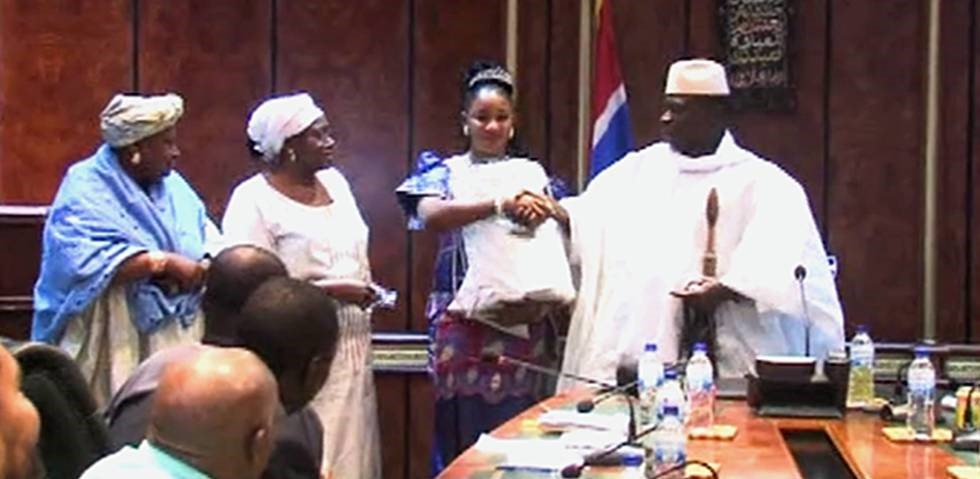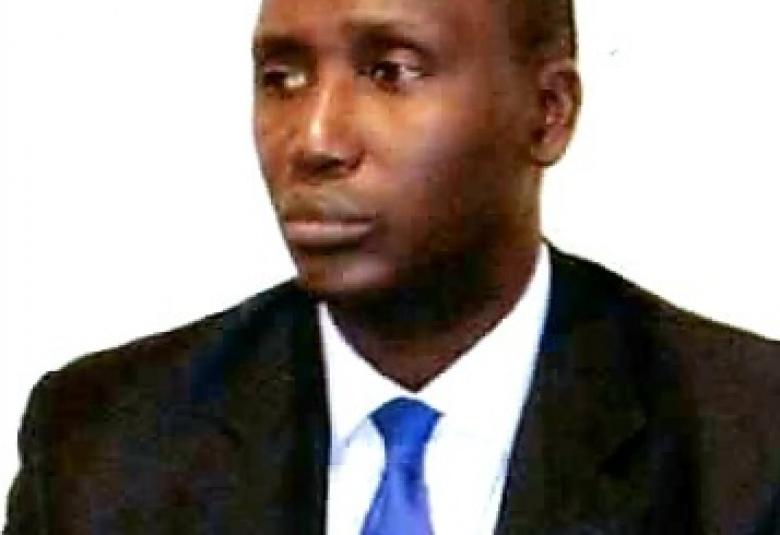Rape allegations remain widely reported in The Gambia despite the end of entrenched dictatorship leaving women and girls disappointed about the persisting reality. In 2016, they hoped that such a horrendous sexual violence against them was history. But going by the reports, the only difference between the two regimes is that the previous president was accused of directly raping a woman.
“I am a survivor of sexual violence. I was raped by a closed family member. I can tell you I am still living with that trauma, but I cannot share this story widely. Not only that I was cautioned by my parents to let it go, but I am personally afraid because that stigma will forever haunt me, if I do,” Nini Ngai (not her real name) said.
Ngai has now completed her secondary education. Although the trauma continues for her, the dream of making it in life is certainly shown in her face.
The Gambia’s Truth, Reconciliation and Reparations Commission (TRRC) has conducted an exclusive hearing in 2019 on gender based and sexual violence during dictatorship. Several women have openly testified, accusing the former President, Yahya Jammeh and his security officers of rape.
Fatoumatta Jallow alias ‘Toufa’, a beauty pageant contestant was among the victims, claiming the former Gambian president Yahya Jammeh raped her inside State House.
She kept the story to herself for years because she believes that nobody will believe her claim, knowing that Jammeh was the most powerful person in the country.
“…who am I for anybody to believe me, and where do I say this, and when do I say it? What do I expect is going to happen? This did not happen…but this was what happened on the night Yahya Jammeh raped me, and how he did it,” Jallow told the TRRC in 2019 as she gave an account on how Jammeh forced himself and penetrated her in State House.
Ex-president’s chief protocol officer, Alagie Ceesay had also testified at the commission where he confirmed Jammeh’s involvement in sexual violence.
“Jammeh has [an] appetite for women. He is obsessed with beautiful ladies. That was an open secret at State House during his regime,” he says.
Consultations conducted by the International Centre for Transitional Justice (ICTJ) with rural women and analyzed into the report “Women’s Experiences of Dictatorship in The Gambia” disclosed that during the forced labor several women were sexually and economically exploited: “Officials visiting the farm in Kanilai will entice the women (who were working at the president farm) into having sex with them by offering them money. They would identify the women during the day and at night they would send soldiers to these women. The women were afraid to refuse for the fear of being tortured or harmed.”
Meanwhile, the government and the civil societies have exerted more commitment to end the menace across the country. This has been manifested through the promulgation of laws that protect women and girls as well as intensifying campaigns across the country.
Bafu Jeng, a senior state lawyer who’s in charge of prosecution of sexual and domestic violence cases, admits the growing concerns over the phenomenon, saying “it is happening in the country.”
“I will say it is really something that is happening. There is rape, there is indecent assault, there is sexual harassment, defilement, and they come in all forms. But the rape part and defilement are very prominent,” she said in an interview.
According to her, the government has taken note of it, and it is doing its best to eliminate sexual and domestic violence in the country.
“For the past years in terms of legal framework we’ve had laws that are created for the promotion of the right of the women and children as well as for the protection of women, children and even men from domestic and sexual violence,” she told this journalist in 2019.
The Gambia has ratified and domesticated several international and regional instruments that promote and protect women and girls from all forms of abuses. In 2005 the country has promulgated Children’s Act which was amended in 2016 to include the prohibition of child marriage. The Women Act was also passed into law in 2010 which promotes the rights of women and ensures their protection from domestic violence as well as sexual offenses. In addition to that, the country also has both the Sexual Offences Act 2013 and the Domestic Violence Act 2013.
The Ministry of Justice has established the Sexual and Gender Based Violence Unit at its headquarters in 2018 which is made up of lawyers, police investigators and prosecutors as well as social workers. It monitors and assists the police with investigations and prioritizing the prosecution of cases in the courts.
“Domestic violence is an issue in this country to be honest and it has been widely practiced in our communities and in different forms,” says Fallu Sowe, national coordinator of Network against Gender Based Violence (NGBV).
For gender-based violence, he said apart from cultural reasons, ignorance is also a major player. In the 2018 UNICEF supported Multi-Indicators Cluster Survey carried out by Gambia Bureau of Statistics (GBOS), 49.9 percent of women said wife beating by husbands is justifiable. Interestingly, 26.3 of men condoned its perception.
“That has shown how our women are nurtured to beliefs culturally and traditionally, to inflict violence on them is acceptable because that’s what the result is showing. This is showing us that sometimes acceptance of violence is not about an individual; it’s about the system you were groomed and nurtured in. Most of these are physical violence,” Sowe said.
NGBV was established by a group of civil society groups and the government in 2009 to raise awareness on issues of violence against women and girls particularly gender based and sexual violence.
As of 2019, out of 2, 030 cases of gender-based violence that have been recorded, 941 cases are sexual violence, which is around 46 percent.
“We have observed that for the past three years, the number of cases that have been reported as sexual violence is increasing constantly. That shows that more people are violating women and girls.”
“I can tell you that more than 70 percent of these survivors are children – from 17 years down less than, sometimes as low as 1 year. Babies are being sexually abused through rape and other forms of sexual violence such as fondling, but most of the cases in The Gambia are sexual violence through sexual organs, and over 90 percent of the cases are rape and are perpetuated mostly on children as well,” says Sowe.
Sexual violence remains prevalent in the country after the dictatorship going by several reports that keep coming. In March 2020, a local newspaper reported that a former Ministry of Foreign Affairs director of America Division, Melvile Robertson Roberts was charged with rape after scores of girls have accused him of raping them.
“Melville Robertson Roberts is an alleged serial rapist. Over 20 women have accused him of Raping and sexually assaulting then. His youngest known victim was 8 years old. In several of the cases, victims and survivors mentioned his use drugs to rape, locking victims in a room and verbal and physical abuse,” Lala Touray, one of campaigners who made effort to bring him to book for his alleged crime.
According to her, Melville employs several grooming tactics to lure his victims by preying on their vulnerabilities. There are several police reports of rape allegations against Melville.
Apart from Melvile’s case, there are ongoing court trials involving the alleged perpetrators of rape against women.
“Every rape is “murder”; every rape victim living endures a death sentence. To be raped and murdered (both allegedly, if you may) is probably the most horrendous, dastardly, inhuman, unimaginable, indescribable, painful, inexcusable, intolerable death,” said a human rights defender, Njundu Drammeh posted on Facebook recently.





